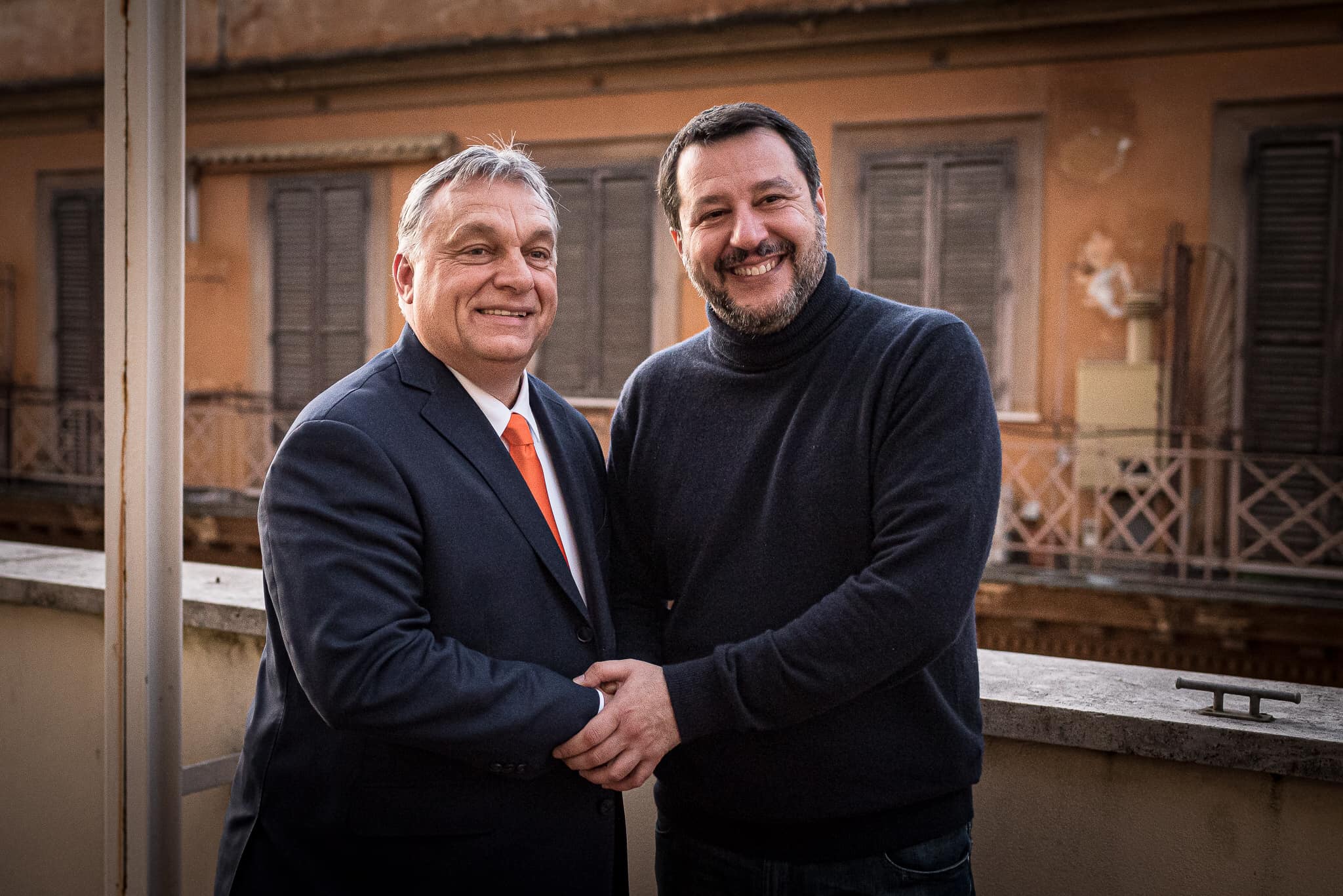The Italian right-wing party urged the government to buy and use doses of the Russian jab amid vaccine tensions – even if it means bypassing European regulators, Orbán-style. But the request flies in the face of all sorts of institutions (and Italy’s geopolitical alignment)
The centre-right League party has called on the Italian government to greenlight the Russian Sputnik V jab for Italy’s vaccination campaign, disregarding the lack of approval from the European Medicines Agency (EMA) and its Italian counterpart, AIFA.
Party members filed a motion on Wednesday morning, demanding an “acceleration” for the approval of the Russian shot in Europe, and the “possibility to evaluate and use it at a national level, as done by other European countries,” should the first option be too slow.
Essentially, the nationalist party is asking Rome to follow the path walked by the Hungarian PM Viktor Orbán, who bought and started inoculating doses of Sputnik V despite EMA and the European framework amid tensions in the block concerning the delivery of approved vaccines.
Only a few other European countries are currently planning to use the Russian shot – and the League would very much have Italy among them. Matteo Salvini, the party leader, discussed Sputnik with Mr Orbán over vaccination strategy. He is among the most vocal supporters of the Russian shot, along with most of the Italian right-wing area (with a few notable exceptions).
EMA experts are set to evaluate Sputnik V on April 10th, but for the time being the jab is not cleared. “[Using Sputnik is] somewhat comparable to a Russian roulette,” said Christa Wirthumer-Hoche, who chairs EMA’a board. “We need documents that we can review. We also don’t have data about vaccinated people.”
The Italian government, chaired by Mario Draghi, has said in the past that it would stick with the European strategy. And Giancarlo Giorgetti, who is minister for the economic development as well as the League’s second-in-command (representing the more moderate, Europhile side of the party) is also toeing the cautious line, even if that contrasts with Mr Salvini’s.
Time and again Mr Giorgetti has signalled that the use of Sputnik for Italy’s vaccination drive will be conditional on EMA’s approval. He said so in his meetings with AIFA and the leaders of Italian pharmaceutical companies.
Mr Giorgetti’s stance is shared by the European commissioner for the internal market Thierry Breton and the French minister of economy, Bruno Le Maire, with whom he reportedly discussed accelerating the production of Italian and French vaccines (ReiThera and Sanofi) which are more likely to receive rapid EMA approvals.
The Sputnik matter is divisive because of its geopolitical element, as Italy is a prime target for Russia’s vaccine diplomacy campaign. The Russian Direct Investment Fund (RDIF), who sells the vaccine on behalf of the Kremlin, is actively seeking production centres in the country, offering extremely convenient amounts of means to produce the jab, and promoting the shot across the world.
The pressure on Italy is increasing. On Tuesday, the Russian government newswire Tass set up a roundtable to highlight the deal reached between the Gamaleya Institute in Moscow, the cradle of the Sputnik vaccine, and the Spallanzani Institute in Rome. It featured institutional and scientific Italian figures, including the Undersecretary of State at the Health Ministry, Pierpaolo Sileri.
However, cheering for the Russian shot essentially amounts to playing into the Kremlin’s hand. Especially considering that even if the jab were approved by EMA, the Russians are low on supplies and Italian local production is estimated to yield around 10 million doses by the end of 2021 – with the EU set to receive 1.4 billion doses, well enough for the whole population, by September.
Thus, Sputnik would not aid Italy’s vaccination drive anyway. But Sputnik production in Italy would be a wonderful launchpad for the RDIF to boost its vaccine exports in Northern Africa and the Middle East, for instance. Which would explain the fund’s eagerness to sign deals with Italian private actors, regardless of the institutional line.
The League, which has a history of cosying up to Moscow, seems bent on aiding the Kremlin’s propaganda. The formerly anti-Europe party, which found its European faith just in time to enter Mr Draghi’s government, is putting on its old Eurosceptic hat for matters concerning Sputnik V. Even if doing so puts the party in direct contrast with the Europeanist, Atlanticist line expressed by Italy’s PM in his inaugural speech (and supported by Mr Giorgetti).








